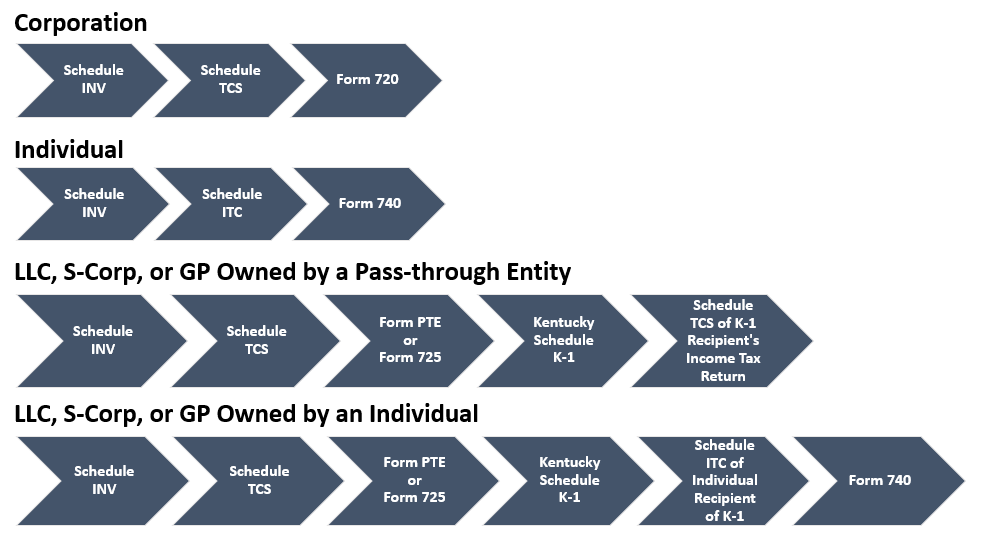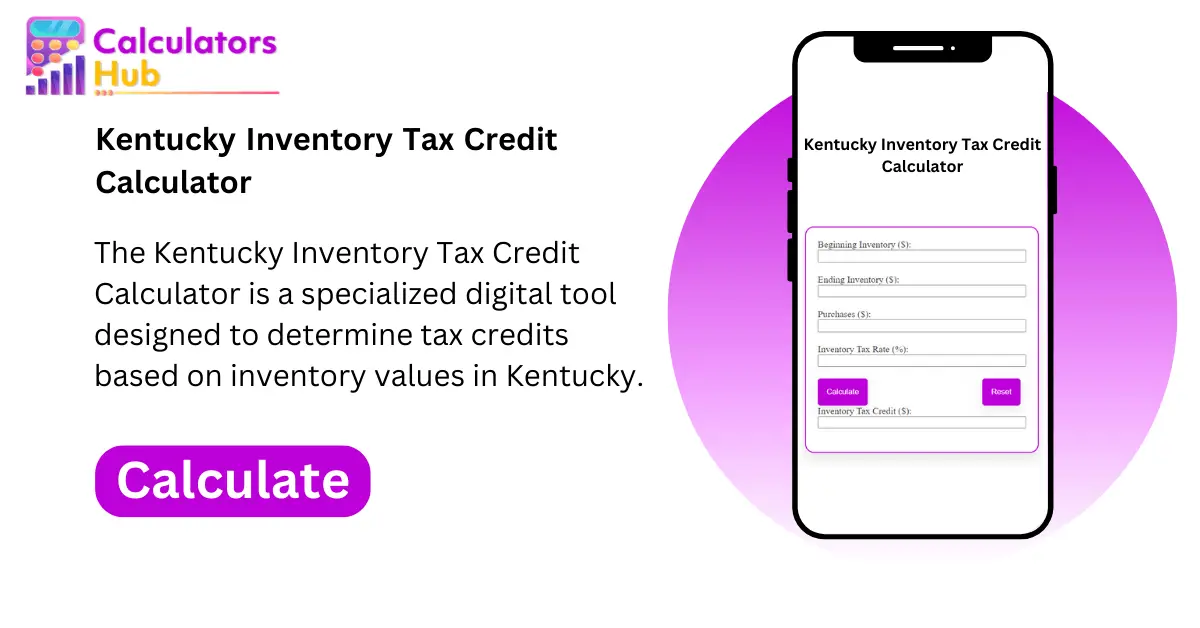Business inventory fiscal year tax kentucky – Welcome to our comprehensive guide on business inventory fiscal year tax in Kentucky. This detailed resource delves into the intricacies of Kentucky’s tax laws, providing a clear understanding of the regulations, exemptions, rates, filing procedures, and audit processes.
Whether you’re a business owner, accountant, or tax professional, this guide will equip you with the knowledge and insights you need to navigate the complexities of Kentucky’s business inventory tax system.
Business Inventory Fiscal Year Tax Kentucky
Kentucky Revised Statutes (KRS) 132.200 imposes a tax on the average value of tangible personal property held for sale in the regular course of business. This tax is due annually on or before May 1st and is based on the average inventory value for the preceding fiscal year.
The Kentucky Department of Revenue defines tangible personal property as any property that can be seen, weighed, measured, felt, or touched, or that is capable of being reduced to a tangible state. Examples of tangible personal property subject to Kentucky business inventory tax include:
- Raw materials
- Work in progress
- Finished goods
- Supplies
- Equipment
Kentucky Business Inventory Tax Exemptions
Kentucky provides various exemptions to reduce the tax burden on businesses. These exemptions can be claimed based on specific criteria, ensuring fair and equitable taxation. Let’s explore the exemptions available for business inventory tax in Kentucky and the requirements for claiming them.
Raw Materials and Work-in-Progress
Raw materials and work-in-progress inventory are exempt from Kentucky business inventory tax. Raw materials are items that have not yet undergone any processing or manufacturing. Work-in-progress inventory refers to items that are partially completed and still require additional work to become finished goods.
Finished Goods Held for Sale
Finished goods held for sale are exempt from business inventory tax if they are intended for resale. This exemption applies to goods that are ready to be sold to customers and are held in inventory for that purpose.
Inventory Held by Non-Profit Organizations
Inventory held by non-profit organizations is exempt from business inventory tax. This exemption applies to inventory used for charitable or educational purposes by qualified non-profit organizations.
Real Estate
Real estate, including land and buildings, is not subject to business inventory tax in Kentucky. This exemption is straightforward and applies to all real estate owned by businesses.
Other Exemptions, Business inventory fiscal year tax kentucky
In addition to the exemptions mentioned above, Kentucky also provides exemptions for:
- Inventory held by manufacturers
- Inventory held by farmers
- Inventory held by businesses located in certain economic development zones
Kentucky Business Inventory Tax Rates
Businesses in Kentucky are subject to varying business inventory tax rates based on the type of inventory they hold and its location within the state.
The applicable tax rate is determined by the following factors:
- Type of inventory:Raw materials, work-in-progress, and finished goods are taxed at different rates.
- Location of inventory:Inventory stored in different counties may be subject to different tax rates.
Tax Rate Table
The following table summarizes the different business inventory tax rates in Kentucky:
| Type of Inventory | Tax Rate |
|---|---|
| Raw materials | 0.03% |
| Work-in-progress | 0.06% |
| Finished goods | 0.09% |
Kentucky Business Inventory Tax Filing and Payment

Kentucky businesses with an average inventory value of $50,000 or more are required to file and pay business inventory tax. The tax is due on April 15th of each year. Late filing or payment may result in penalties.
Steps Involved in Filing and Paying Business Inventory Tax in Kentucky
- Determine if your business is required to file and pay business inventory tax.
- Gather the necessary information, including your business’s inventory value and tax ID number.
- Complete Kentucky Form 740, Business Inventory Tax Return.
- File the return and pay the tax by April 15th.
Deadlines and Penalties for Late Filing or Payment
The deadline for filing and paying business inventory tax in Kentucky is April 15th. Late filing or payment may result in penalties. The penalty for late filing is 10% of the tax due, plus 1% interest per month on the unpaid tax.
The penalty for late payment is 5% of the tax due, plus 1% interest per month on the unpaid tax.
Completing Kentucky Form 740, Business Inventory Tax Return
Kentucky Form 740, Business Inventory Tax Return, is used to file and pay business inventory tax. The form is available on the Kentucky Department of Revenue website. When completing the form, you will need to provide the following information:
- Your business’s name and address
- Your business’s tax ID number
- Your business’s average inventory value
- The amount of tax due
Once you have completed the form, you will need to file it with the Kentucky Department of Revenue. You can file the return by mail or electronically. If you file the return by mail, you must include a check or money order for the amount of tax due.
Kentucky Business Inventory Tax Audits
The Kentucky Department of Revenue conducts audits to ensure businesses are complying with the business inventory tax laws. Audits can be random or triggered by specific factors, such as a significant change in inventory value or a history of non-compliance.
During an audit, the department will review the business’s inventory records, including invoices, purchase orders, and inventory counts. The business will be required to provide documentation to support the accuracy of its inventory records.
Preparing for an Audit
- Organize your inventory records in a logical and accessible manner.
- Keep all documentation related to your inventory, including invoices, purchase orders, and inventory counts.
- Review your inventory records regularly to identify any potential errors.
- Be prepared to provide the department with additional information or documentation if requested.
Responding to an Audit
- Cooperate with the auditor and provide all requested information and documentation.
- Review the auditor’s findings carefully and provide any necessary explanations or corrections.
- If you disagree with the auditor’s findings, you can file an appeal with the Kentucky Board of Tax Appeals.
Concluding Remarks

By understanding the requirements and nuances of Kentucky’s business inventory fiscal year tax, businesses can ensure compliance, minimize tax liabilities, and optimize their financial performance. This guide serves as a valuable tool for navigating the tax landscape and making informed decisions.
Essential Questionnaire
What types of tangible personal property are subject to Kentucky business inventory tax?
Tangible personal property subject to Kentucky business inventory tax includes goods held for sale, raw materials, work in progress, and finished goods.
What exemptions are available for Kentucky business inventory tax?
Exemptions include property used in manufacturing, property held for lease or rental, and property in transit.
What are the different business inventory tax rates in Kentucky?
The rates vary depending on the county and the type of property. The general rate is 0.06%, but it can be higher or lower depending on local ordinances.